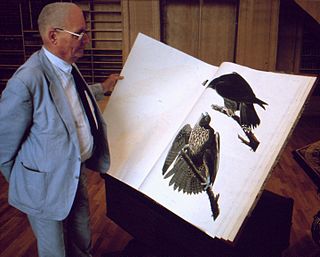Related Research Articles

The National Film Board of Canada is a Canadian public film and digital media producer and distributor. An agency of the Government of Canada, the NFB produces and distributes documentary films, animation, web documentaries, and alternative dramas. In total, the NFB has produced over 13,000 productions since its inception, which have won over 5,000 awards. The NFB reports to the Parliament of Canada through the Minister of Canadian Heritage. It has bilingual production programs and branches in English and French, including multicultural-related documentaries.

Cinema in Canada dates back to the earliest known display of film in Saint-Laurent, Quebec, in 1896. The film industry in Canada has been dominated by the United States, which has utilized Canada as a shooting location and to bypass British film quota laws, throughout its history. Canadian filmmakers, English and French, have been active in the development of cinema in the United States.

The history of cinema in Quebec started on June 27, 1896 when the Frenchman Louis Minier inaugurated the first movie projection in North America in a Montreal theatre room. However, it would have to wait until the 1960s before a genuine Quebec cinema industry would emerge. Approximately 620 feature-length films have been produced, or partially produced by the Quebec film industry since 1943.

Jean Dorst was a French ornithologist.

Roger Lemelin, was a Quebec novelist, television writer and essayist.

Mon oncle Antoine is a 1971 French-language Canadian drama film directed by Claude Jutra for the National Film Board of Canada.

What Remains of Us is a 2004 Canadian documentary film exploring the survival of the nonviolent resistance movement in Tibet. The documentary was shot over eight years without the knowledge of the Chinese authorities.
Joseph Bernard Devlin was a French-Canadian film director, producer, and writer who played an important role in the development of French-language film production at the National Film Board of Canada (NFB).

Pour la suite du monde is a 1963 Canadian documentary film produced by the National Film Board of Canada and directed by Michel Brault, Marcel Carrière and Pierre Perrault. It is the first of Perrault's Isle-aux-Coudres Trilogy: Le règne du jour followed in 1967, Les voitures d'eau in 1968.
J.A. Martin Photographer is a 1977 drama film directed by Jean Beaudin for the National Film Board of Canada.
Grant McLean, CM was a Canadian filmmaker, working as a cinematographer, film director and producer for the National Film Board of Canada (NFB), and serving as its Acting Commissioner through 1966 and 1967.
Guy Roberge was a Canadian journalist, lawyer, politician and civil servant. He also served as Canada's Government Film Commissioner during the 1950s and 60s, in which capacity he ran the National Film Board of Canada. He was the first French Canadian to occupy this role.
Roger Lebel was a Canadian actor.
Guy Glover was a senior National Film Board of Canada (NFB) producer and administrator who was born in London, U.K. and died in Hudson, Canada.
Jean Palardy was a French-Canadian painter, art historian, ethnologist and filmmaker.
The 21st Canadian Film Awards were held on October 4, 1969 to honour achievements in Canadian film. The ceremony, attended by 1,200 people, was hosted by broadcaster Fred Davis.
The 25th Canadian Film Awards were announced on October 12, 1973, to honour achievements in Canadian film.
The 23rd Canadian Film Awards were held on October 1, 1971 to honour achievements in Canadian film. The ceremony, which had been returned to banquet format, was hosted by actor Leslie Nielsen and broadcaster Charlotte Gobeil.
The 5th Canadian Film Awards were presented on April 30, 1953 to honour achievements in Canadian film.
Games of the XXI Olympiad is a Canadian documentary film, directed by Jean Beaudin, Marcel Carrière, Georges Dufaux and Jean-Claude Labrecque and released in 1977. The film compiles highlights of the 1976 Summer Olympics in Montreal, Quebec.
References
- ↑ "Première du film «L'homme aux oiseaux»". Bilan du siècle.
- 1 2 3 4 Gary Evans, In the National Interest: A Chronicle of the National Film Board of Canada from 1949 to 1989. University of Toronto Press, 1991. ISBN 9780802068330. p. 22.
- ↑ Marcel Jean, "L’ONF par ceux qui l’ont imaginé". 24 images, No. 149 (Oct/Nov 2010). pp. 10–14.
- ↑ Maria Topalovich, And the Genie Goes To...: Celebrating 50 Years of the Canadian Film Awards. Stoddart Publishing, 2000. ISBN 0-7737-3238-1. pp. 21–24.